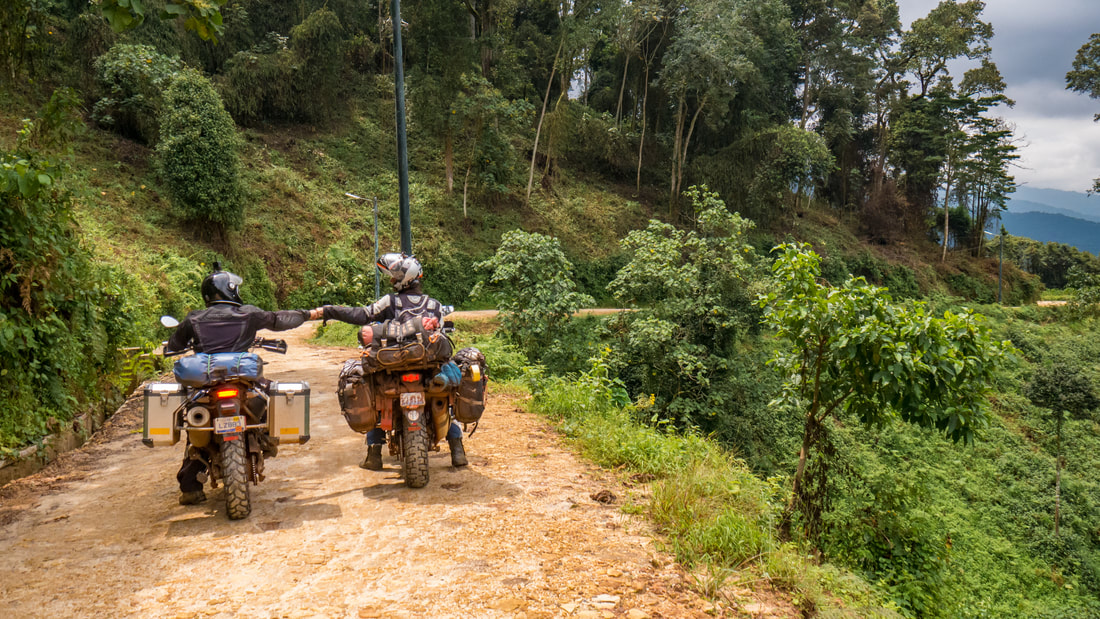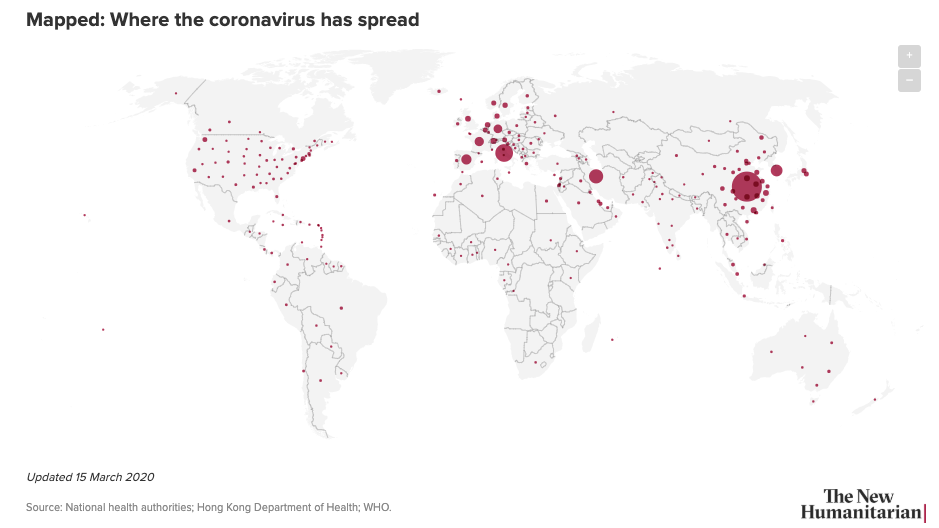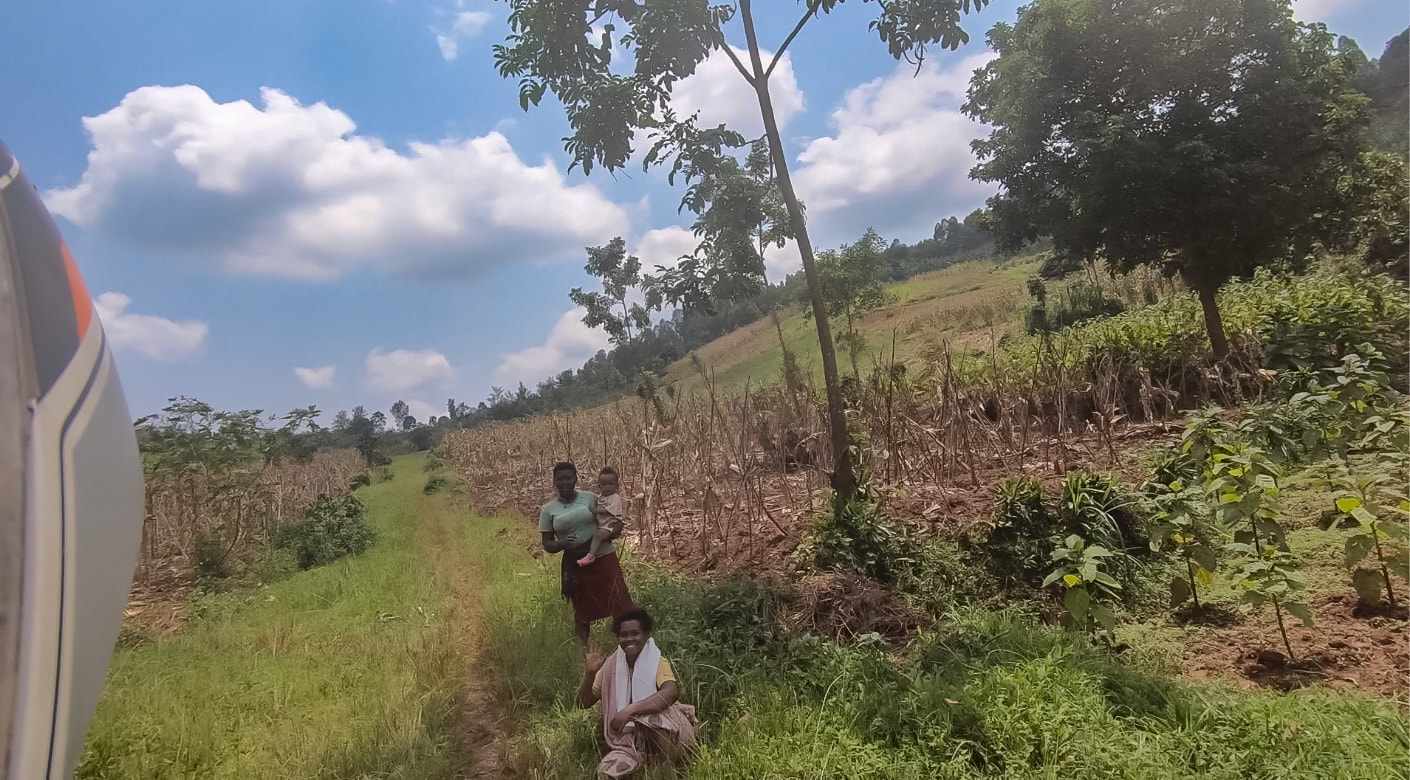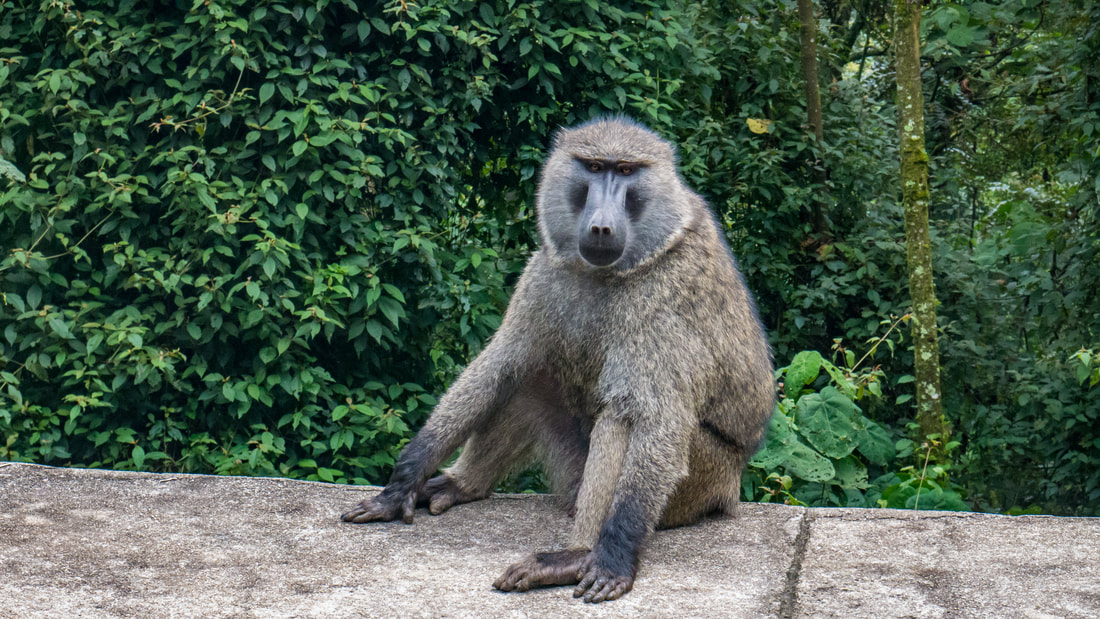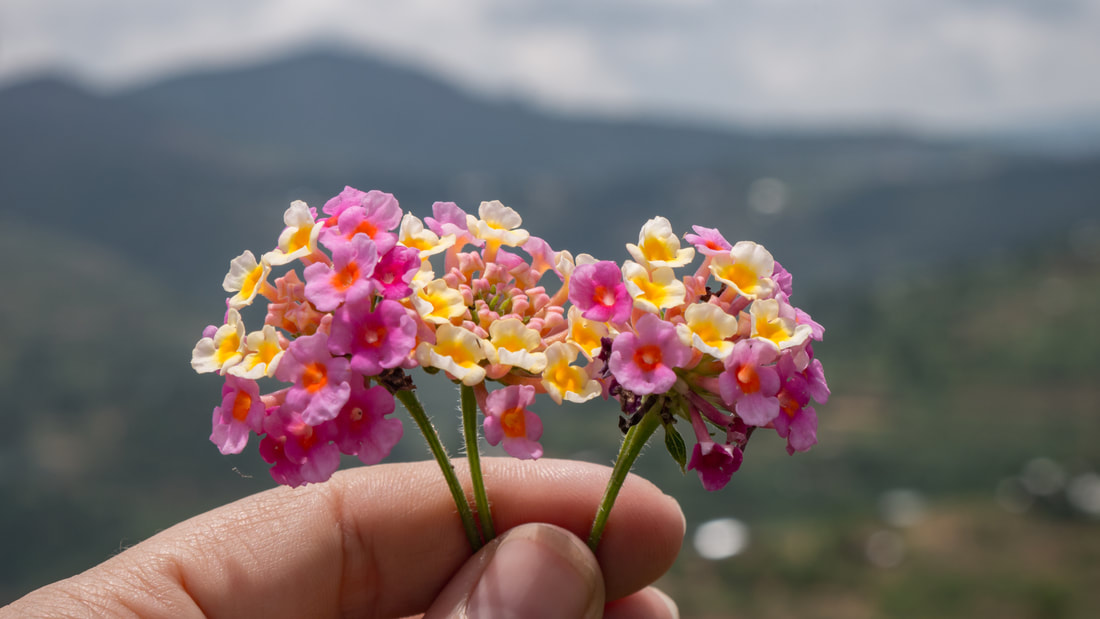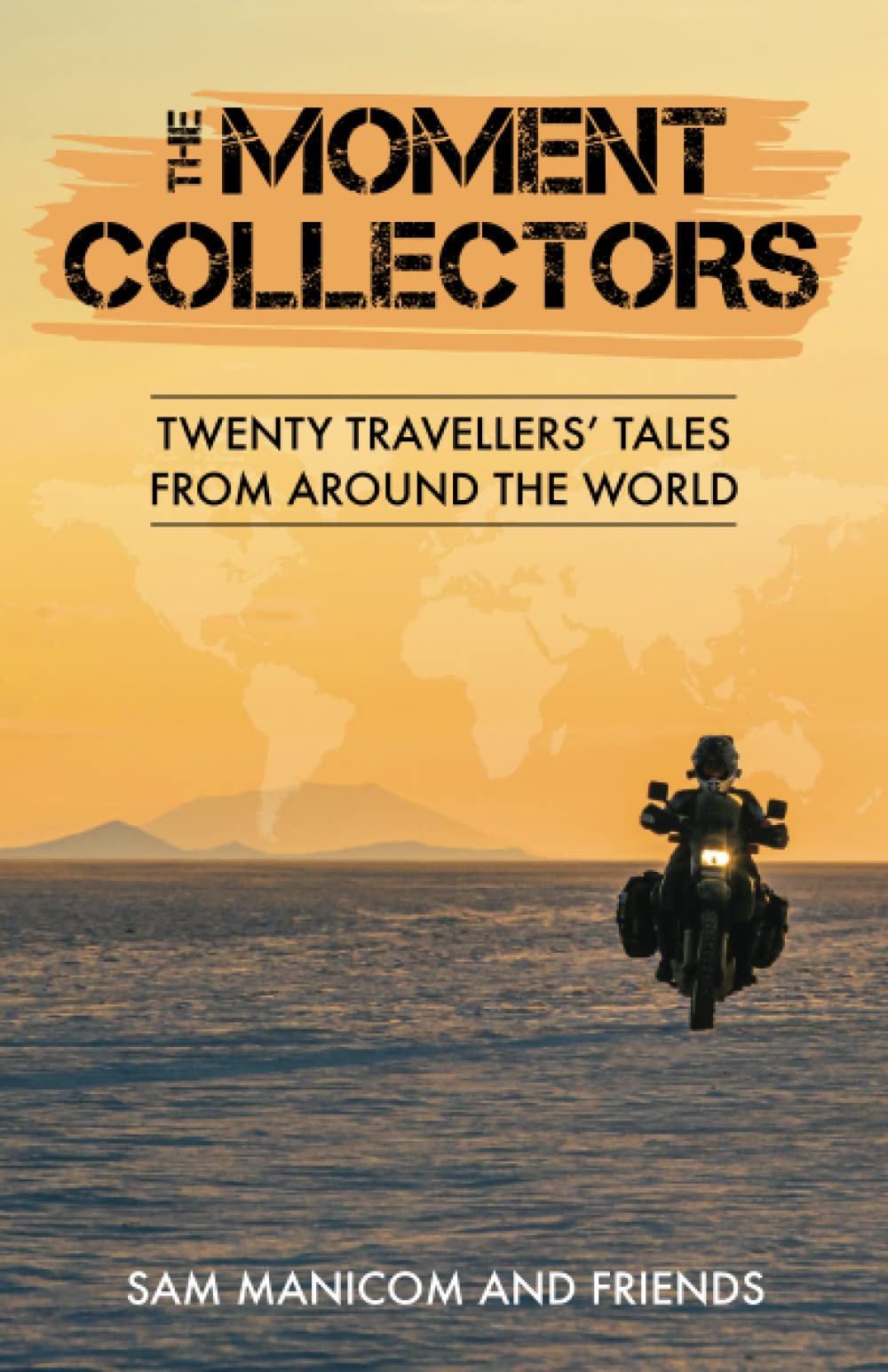By MarisaIn any emergency situation, my first instinct is always to go where I feel most safe. In the case of this COVID-19 Coronavirus pandemic that is gripping the globe, that's my first reaction once again: to leave Uganda and fly home to Chicago where I can be with friends and family. But upon further reflection, Tim and I have decided that it may be best for us to wait out the storm in Africa, even if that means we'll be quarantined and on lock-down in whichever country we find ourselves in. Uganda, Kenya, or Ethiopia are our immediate options, though it's not like we'll have a choice when it happens. And when the lock-down begins, we'll be stuck. For how long, we don't know. Is this really the best option for us? Well, there's no saying for sure, but the following is a snapshot of what's been happening out here, and why we're choosing not to leave. The Situation Now in East AfricaSo far, life here in Uganda is continuing like normal. The Coronavirus hit Sub-Saharan Africa very late in this pandemic and is still reported as only isolated cases in large cities and international hubs such as Nairobi, Kenya or Addis Ababa, Ethiopia. There have been no major outbreaks in the entire region. Yet. That means that businesses are still open, there are even other tourists at the hotels going on safaris and hiking through the national parks. Stores are full of supplies and no one is panic buying. Yes, there is even toilet paper, but in all honesty, most people out here have squat toilets and don't use toilet paper. In some ways, this region is well-equipped to go into survival mode. Most people who live in rural areas rely on food grown and raised right in their backyard, and the rainy season has provided the region with lots of healthy crops and gardens. We are in an area of fresh water lakes, while herds of cows graze through the fields. So no one seems to be concerned with running out of basic necessities. Even electricity is often obtained from solar panels. But that doesn't mean that people here aren't taking the Coronavirus seriously. In fact, they know all about viral outbreaks, and have many systems and practices in place from when Ebola was a big concern a year ago. At the border between Rwanda and Uganda they were taking everyone's temperatures, forcing you to sterilize your boots and hands, and the guards and medical personnel were wearing masks and gloves. I have to say, it did look a bit apocalyptic to see a camo-clad soldier holding an AK47 with rubber gloves on and a doctor's face mask. What sort of bio-terrorism guerrilla warfare sci-fi tv show have we stepped into? Outside of the border, no one on the street is wearing masks. But everyone is watching the news closely, washing their hands, giving elbow bumps instead of hand shakes. They know the drill here, and no one in Africa makes fun of virus epidemics. It's an unfortunate part of African life. What will happen as it spreads...Well, no one can say for sure what will happen. There are now only a few confirmed cases of the Coronavirus in East Africa at the moment. But if there's any indication of what's been happening in other countries, this virus will spread undetected elsewhere in the region. And when it does, the already fragile health care system of these countries might be be overwhelmed. East Africa has some real disadvantages in the fight against this pandemic, such as poor economies based in tourism that may not easily recover from a financial slump, few qualified health care professionals, and a lack of a solid medical infrastructure. But Africa may also have a couple of advantages. Africa is a continent of young people, who usually only get mild symptoms of the virus and don't need hospitalization (though they can still spread it). Only 2.7% of Kenyans are 65 and older, compared to 14% in the US (source). Those are who are smokers are also more susceptible to having serious complications of the Coronavirus. I'm happy to say that Tim quit smoking nearly a year ago, and we're now more thankful than ever that he did. But besides him, East Africa doesn't have a lot of smokers: only 4% of adults in Ethiopia are smokers compared to 21% in the US as of 2018 (source). I can only hope that these factors will spare East Africa from becoming a humanitarian disaster. This is just a hope though, as the only way to truly know is to wait and see. Our PlanSo instead of spending thousands of dollars on last-minute airfare, along with flying our bike back to the States, we've decided to stay. Being close to friends and family may be what we want, but it's also what the virus wants. We will most likely need to renew and extend our visas, and if there's a quarantine and we're forced to stay put, I have no idea how that will affect our visas, as this is all unprecedented. But we'll find out I suppose. Maybe if we are in a place long-term, we'll rent an apartment. We're still traveling with Leo, which has been wonderful, and especially in a difficult situation, it's good to have a friend around so that we know we're not in this alone. Also, we are so thankful to have the messages and well-wishes from all of you out there, and we wish only the same for you. Because above all, we hope that you stay safe, and please keep us updated just as we will keep you updated.
We'll write Part 2 once we know how things out here are going to progress. |
Follow UsRide with us from Chicago to Panama!
2Up and Overloaded Get inspired by the tale that started it all:
Maiden Voyage 20 author's tales of exploring the world!
The Moment Collectors Help us get 40 miles further down the road with a gallon of gas!
Become a Patron for early access to our YouTube Videos!
Subscribe to our YouTube Channel!
Subscribe to our Blog by Email
|
2Up and Overloaded
Join our clan of like-minded adventurers...
Proudly powered by Weebly
Designed by Marisa Notier

